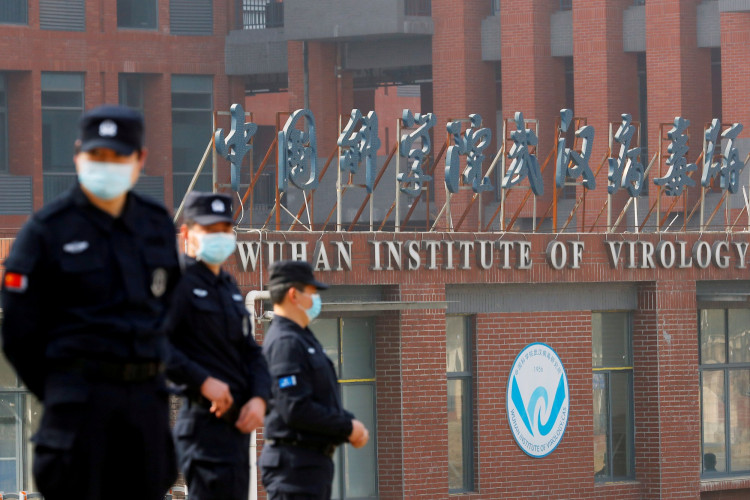A new U.S. intelligence report has found that several researchers at China's Wuhan Institute of Virology became ill in November 2019 and had to be hospitalized, providing new information about the seriousness of their symptoms and potentially fueling further discussion about the source of COVID-19.
On Monday, the director of the Wuhan National Biosafety Lab, which is part of the Wuhan Institute of Virology, strongly denied the report.
"I've read it, it's a complete lie," director Yuan Zhiming told Global Times. "Those claims are groundless. The lab has not been aware of this situation, and I don't even know where such information came from."
The researchers became ill in autumn 2019, according to a State Department fact sheet issued by the Trump administration in January, but they were not hospitalized. On Dec. 8, 2019, China announced to the World Health Organization that the first patient with COVID-like symptoms was recorded in Wuhan.
The Wall Street Journal was the first to report on the earlier hospitalizations' intelligence.
The intelligence community still does not know what the researchers were infected with, according to those briefed, and has low trust in its estimates of the virus's specific source beyond the fact that it originated in China.
During the Worldwide Threats Hearing in April, Director of National Intelligence Avril Haines told lawmakers that "the intelligence community does not know exactly where, when, or how COVID-19 virus was transmitted initially," an assessment that has not changed, said to two people briefed on the intelligence.
According to the sources, the latest intelligence reinforces the belief that the virus most likely originated naturally, through animal-human contact. However, this does not rule out the possibility that the virus was the result of an unintentional leak from the Wuhan Institute, where coronavirus research on bats was being conducted.
The World Health Organization conducted an investigation into the origins of the pandemic and concluded in a report that the risk of an accident was "extremely low."
The report said there was "no reporting of COVID-19 compatible respiratory illness during the weeks/months before December 2019, and no serological evidence of infection in workers through SARS-CoV-2-specific serology-screening."
However, the WHO investigation was quickly criticized by the U.S., U.K., and other governments for its lack of access to "complete, original data and samples."
Throughout the study, the organization was accused of being too deferential to China, which was co-authored by 17 Chinese scientists, many of whom worked at state-run institutions.
According to CNN, one important path to seeking a response would be to perform genetic sequencing on the original samples that the Wuhan lab was working on. However, "the Chinese are never going to allow that," said one source familiar with the underlying intelligence.




